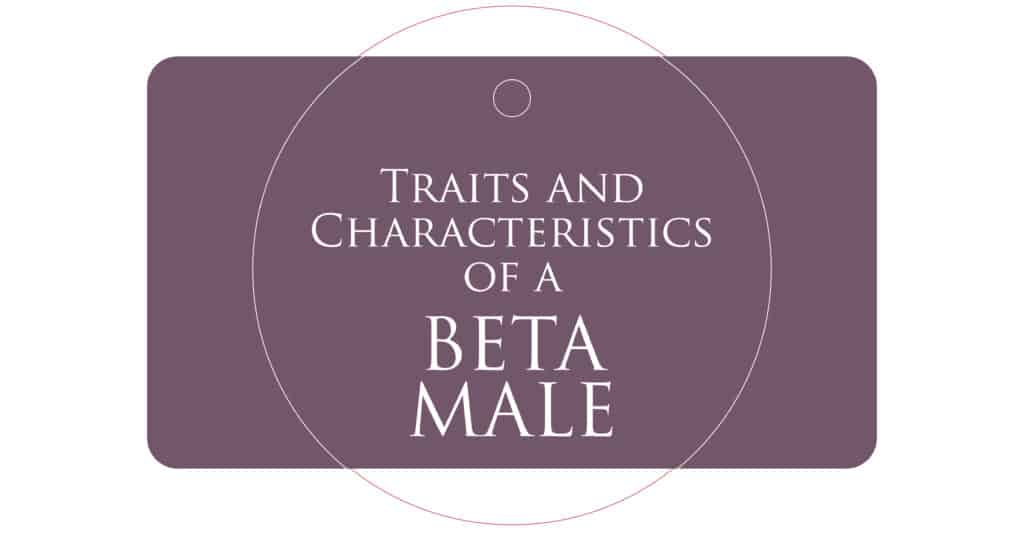In discussions about social dynamics, terms like alpha male and beta male often surface, shaping perceptions of masculinity and gender roles. But what is a beta male? This question sparks curiosity as society navigates evolving expectations of men in social hierarchies. A beta male is typically characterized as someone who exhibits submissive personality traits, prioritizes collaboration over dominance, and often operates comfortably in supportive roles. Unlike the assertive, leadership-driven alpha male, a beta male’s traits – empathy, cooperation, and humility – offer unique strengths that challenge traditional notions of masculinity.
This blog explores the defining characteristics of a beta male, their role in social structures, and how these traits impact confidence and mental health. By understanding these dynamics, we can foster healthier conversations about gender roles and personal identity.
Defining the Beta Male in Social Hierarchies
The concept of a beta male originates from studies of animal behavior, particularly in species with clear social hierarchies, such as wolves. In these groups, the alpha male assumes dominance, leading the pack, while beta males occupy secondary roles, supporting the group through cooperation. In human contexts, the term has evolved to describe men who exhibit less aggressive or dominant behaviors compared to their alpha counterparts.
Beta males are often misunderstood as “lesser” due to their submissive personality traits, but this oversimplification ignores their value. According to a 2018 article from Psychology Today, beta males contribute significantly to group dynamics by fostering stability and collaboration. Their ability to prioritize group harmony over personal dominance makes them essential in workplaces, families, and communities.
Key traits of a beta male include:
- Empathy: Beta males are attuned to others’ emotions, making them excellent listeners and supportive friends.
- Cooperation: They thrive in team settings, valuing collective success over individual glory.
- Humility: Rather than seeking the spotlight, beta males are comfortable supporting others’ achievements.
- Conflict avoidance: They prefer diplomacy over confrontation, seeking to de-escalate tense situations.
These characteristics contrast with the alpha male’s confidence, assertiveness, and desire for control, highlighting a spectrum of masculinity rather than a binary.
San Jose Mental Health
Beta Male Vs. Alpha Male: A Comparative Look
To better understand what is a beta male, it’s helpful to compare their traits with those of an alpha male. The following table outlines key differences in behavior, social roles, and perceptions of masculinity:
| Trait | Beta Male | Alpha Male |
| Leadership Style | Collaborative, supports group goals | Directive, takes charge and seeks leadership roles |
| Social Behavior | Empathetic, prioritizes relationships | Confident, often dominates conversations and social settings |
| Conflict Approach | Avoids conflict, seeks compromise | Confronts challenges directly, may assert dominance |
| Perception | Seen as supportive, reliable, sometimes passive | Viewed as charismatic, authoritative, sometimes aggressive |
| Strengths | Builds trust, fosters teamwork | Drives results, inspires action |
This comparison reveals that neither archetype is inherently superior; each contributes uniquely to social dynamics. Beta males excel in environments requiring emotional intelligence, while alpha males thrive in high-stakes, competitive settings.
The Role of Confidence in Beta Male Identity
Confidence is often associated with alpha males, but beta males can also exhibit confidence in quieter, less ostentatious ways. A beta male’s confidence stems from self-acceptance and comfort in their supportive roles, rather than a need to dominate. However, societal pressures tying masculinity to dominance can challenge a beta male’s self-esteem, leading to feelings of inadequacy.

A 2020 study from the American Psychological Association found that men who don’t align with traditional masculine norms, such as dominance, may experience social stigma but also report higher life satisfaction when embracing their authentic traits. For beta males, building confidence involves rejecting stereotypes and valuing their contributions, such as:
- Emotional intelligence: Their ability to connect with others fosters trust and loyalty.
- Reliability: Beta males are often the backbone of teams, ensuring tasks are completed collaboratively.
- Adaptability: Their willingness to compromise makes them versatile in diverse settings.
By reframing submissive personality traits as strengths, beta males can cultivate a sense of masculinity that aligns with their values, rather than societal expectations.
San Jose Mental Health
Gender Roles and Societal Perceptions
Gender roles heavily influence how beta males are perceived. Traditional expectations of masculinity – stoicism, dominance, and independence – often clash with the beta male’s collaborative and empathetic nature. This disconnect can lead to criticism, with beta males labeled as “weak” or “unassertive.” Yet, as society evolves, these stereotypes are being challenged.
Modern workplaces, for example, increasingly value emotional intelligence and teamwork – qualities beta males naturally embody. In relationships, beta males often excel as partners, prioritizing communication and mutual respect. However, they may face pressure to adopt alpha-like behaviors to “prove” their masculinity, which can strain mental health.
The following table explores how beta males navigate key social contexts:
| Context | Beta Male Role | Challenges |
| Workplace | Team player, fosters collaboration, supports leadership | May be overlooked for promotions due to lack of assertiveness |
| Relationships | Nurturing, communicative, prioritizes partner’s needs | May struggle with partners expecting traditional masculine dominance |
| Social Settings | Builds connections, avoids conflict, supports group cohesion | Risk of being overshadowed by more dominant personalities |
These insights underscore the importance of redefining masculinity to include diverse expressions, allowing beta males to thrive without conforming to outdated norms.
Embracing Beta Male Strengths for Mental Wellness
Rather than viewing beta male traits as shortcomings, society can benefit from celebrating their contributions. Empathy, humility, and cooperation are not only valuable in personal relationships but also critical for mental wellness. Beta males who embrace their authentic selves often report lower stress levels, as they avoid the pressure of constant dominance.
However, those struggling with societal expectations may experience anxiety or self-doubt. Seeking support from mental health professionals can help beta males navigate these challenges, building confidence and resilience. Organizations like San Jose Mental Health offer resources to address these concerns, promoting healthier self-perceptions.
Beta Brilliance: Redefining Strength With San Jose Mental Health
The traits of a beta male – empathy, collaboration, and humility – shine as strengths in a world that increasingly values connection over competition. By embracing their unique contributions, beta males can redefine masculinity and inspire others to do the same.
If you or someone you know is grappling with societal pressures or seeking to build confidence, contact San Jose Mental Health for support. Their expert team offers tailored guidance to help individuals thrive in their authentic identities, fostering mental wellness and personal growth. Reach out today to learn more about their services and start your journey toward a healthier, more confident you.

San Jose Mental Health
FAQs
What is a beta male, and how do they differ from alpha males?
A beta male is characterized by submissive personality traits, such as empathy, cooperation, and humility, prioritizing group harmony over dominance. Unlike alpha males, who exhibit confidence and assertiveness, beta males focus on collaboration and emotional intelligence. This distinction highlights diverse expressions of masculinity within social hierarchies.
Are beta males less confident than alpha males?
Beta males can be confident, though their confidence manifests differently, often through self-acceptance and reliability rather than dominance. Societal expectations tying masculinity to assertiveness may challenge their self-esteem, but embracing their strengths fosters resilience. Support from mental health professionals can further enhance their confidence.
How do beta males contribute to social hierarchies?
Beta males play a vital role in social hierarchies by fostering collaboration, building trust, and promoting group cohesion. Their empathetic and diplomatic nature makes them effective team players in workplaces and supportive partners in relationships. These contributions are essential for balanced, harmonious social dynamics.
Can beta males succeed in leadership roles?
Yes, beta males can excel in leadership roles, particularly in environments that value teamwork and emotional intelligence. Their collaborative approach inspires loyalty and fosters inclusive decision-making. However, they may need to develop assertiveness to overcome perceptions of passivity in competitive settings.
How can beta males navigate societal expectations of masculinity?
Beta males can navigate societal expectations by embracing their authentic traits and rejecting stereotypes tying masculinity to dominance. Building confidence through self-reflection and seeking mental health support, such as from San Jose Mental Health, can help them thrive. Celebrating their strengths promotes mental wellness and personal fulfillment.








